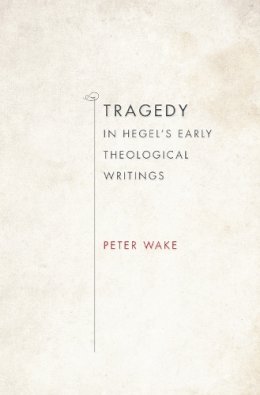
Stock image for illustration purposes only - book cover, edition or condition may vary.
Tragedy in Hegel´s Early Theological Writings
Peter Wake
€ 68.53
FREE Delivery in Ireland
Description for Tragedy in Hegel´s Early Theological Writings
Hardback. Tragedy plays a central role in Hegel's early writings on theology and politics. Hegel's overarching aim in these texts is to determine the kind of mythology that would best complement religious and political freedom in modernity. This book deals with this role. Series: Indiana Series in the Philosophy of Religion. Num Pages: 272 pages, black & white illustrations. BIC Classification: HRAB; HRLB. Category: (P) Professional & Vocational. Dimension: 232 x 169 x 25. Weight in Grams: 602.
Tragedy plays a central role in Hegel's early writings on theology and politics. Hegel's overarching aim in these texts is to determine the kind of mythology that would best complement religious and political freedom in modernity. Peter Wake claims that, for Hegel at this early stage, ancient Greek tragedy provided the model for such a mythology and suggested a way to oppose the rigid hierarchies and authoritarianism that characterized Europe of his day. Wake follows Hegel as he develops his idea of the essence of Christianity and its relation to the distinctly tragic expression of beauty found in Greek mythology.
Product Details
Format
Hardback
Publication date
2014
Publisher
Indiana University Press United States
Number of pages
272
Condition
New
Series
Indiana Series in the Philosophy of Religion
Number of Pages
264
Place of Publication
Bloomington, IN, United States
ISBN
9780253012517
SKU
V9780253012517
Shipping Time
Usually ships in 7 to 11 working days
Ref
99-50
About Peter Wake
Peter Wake is Associate Professor of Philosophy at St. Edward's University in Austin, Texas.
Reviews for Tragedy in Hegel´s Early Theological Writings
Wake's book is provocative and helpful because it sharpens appreciation of the complexity of the material in the ETW; it brings into focus tensions and contradictions in the texts. It contributes to the recognition of the subtlety and enduring importance of this early work.
Notre Dame Philosophical Reviews
Notre Dame Philosophical Reviews
